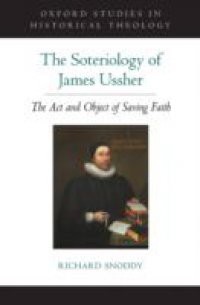Drawing on material from a range of genres, with extensive reference to manuscript collections, Richard Snoddy offers a detailed study of James Usshers applied soteriology. After locating Ussher in the ecclesiastical context of seventeenth-century Ireland and England, Snoddy examines his teaching on the doctrines of atonement, justification, sanctification, and assurance. He considers their interconnection in Usshers thought, particularly the manner in which a general atonement functions as the ground of justification and the extent to which it functions as the ground of assurance. The book documents Usshers change of mind on a number of important issues, especially how, from holding to a limited atonement and an assurance that is of the essence of faith, he moved to belief in a general atonement and an assurance obtained through experimental piety. Within the framework of one widely accepted scholarly paradigm he appears to move from one logically inconsistent position to another, but his thought contains an inner logic that questions the explanatory power of that paradigm. This insightful study sheds new light on the diversity of seventeenth-century Reformed theology in the British Isles.

